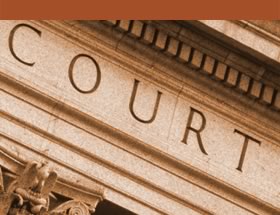Is DNA evidence alone enough to convict?
R. v. O'Brien, 2011 SCC 29
So Mr. Justice Binnie gets it right while other justices from the SCC move things one step further away from ensuring Canadians have a fair trial. In a recent decision, R. v. O'Brien, 2011 SCC 29, the defendant was convicted by nothing more than a finding of his DNA on a mask found nearby a crime scene. But what was really proven by that fact? Only that he wore it or had it in his possession at some point in time. There can be no question that the mask was used in the commission of the crime, but there was no evidence as to when the defendant wore it – could have been days or months prior. The sloppy use of the bad character evidence issue aside, I’m still left even with that character evidence in to wonder how the Court possibly found that to be proof beyond a reasonable doubt.
But what about the evidence of bad character that never should have been heard at trial? Did it taint the judge’s mind into prejudging the defendant as a guilty man? Maybe. We don’t know since the judge never actually referred to it in His decision. For that reason, the majority of the SCC judicially “cured” the defect relying on the ever-wonderful curative proviso of the Criminal Code – s.686(1)(b)(iii) – which, in layman’s terms, effectively says: “yeah the judge screwed up, but the defendant was clearly guilty, so no big deal”.
I guess what’s most interesting about this case is that it shows just how far the law is being stretched in recent years to apply this curative proviso and avoid retrials even when they’re necessary. Recently, our office applied for leave to the SCC to argue an appeal where the trial judge applied this provision to save a trial where he had no jurisdiction to even hear the trial. Our client was required to have a jury trial; instead, he was tried by a judge sitting alone. Instead of granting him his right to a trial by a jury of his peers, the SCC denied leave and so the conviction was upheld. On the plus side society didn’t need to spend more money running the same trial again; on the down side, the intrinsic value of the need for a jury was severely undermined.
While I don’t disagree with the application of this curative proviso in some cases, it should be reserved only for those trials where the evidence is so overwhelmingly conclusive of guilt beyond a reasonable doubt notwithstanding the error that to re-try it would absolutely be a waste of judicial resources. In O’Brien’s case, however, his conviction was based “entirely” on identification evidence proving only that he was in contact with the mask at some point in time, but not that he necessarily was the one wearing it at the time of the crime. The judge heard evidence which tended to label O’Brien as a “bad guy” and perhaps partly based on that, he was convicted despite the weak evidence. I agree with Mr. Justice Binne that the conviction was not necessarily inevitable. As he says: “Trial judges may be presumed to know the law but occasionally they misapply it. Otherwise there would be no need for appellate courts.” Apparently the SCC sometimes makes mistakes too.








